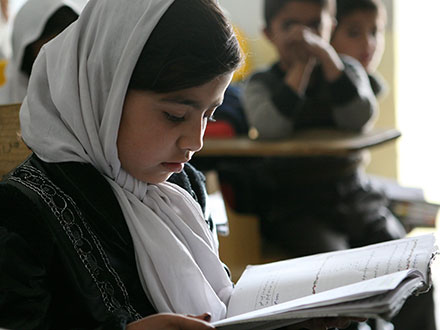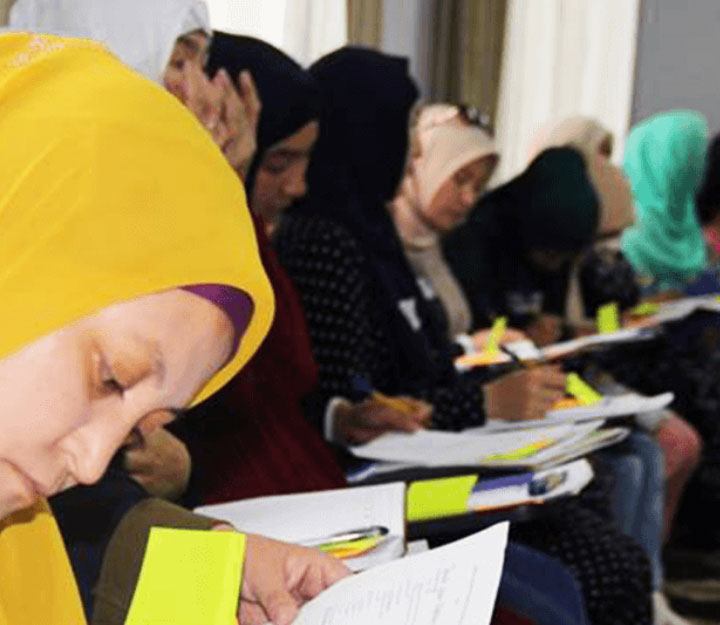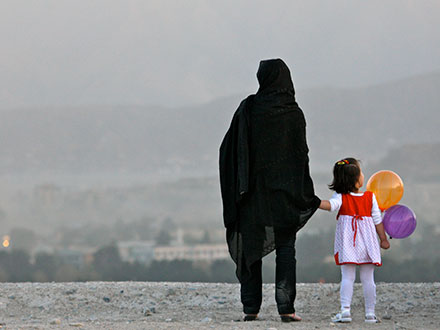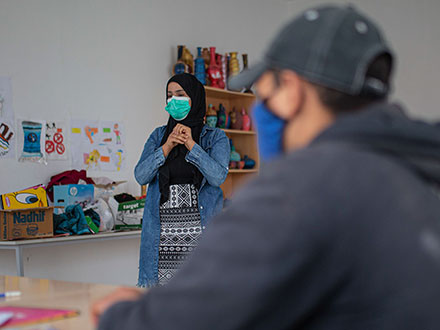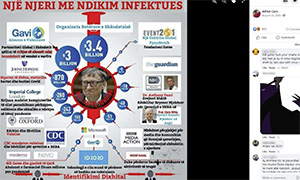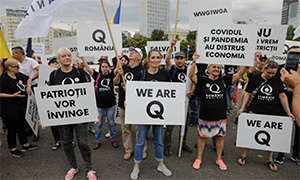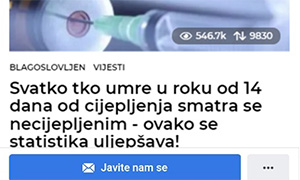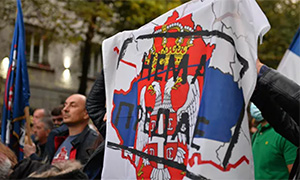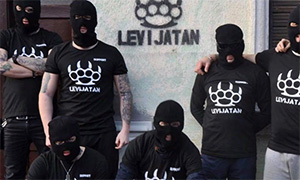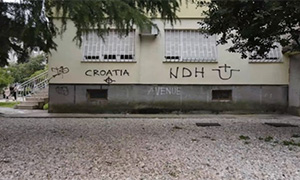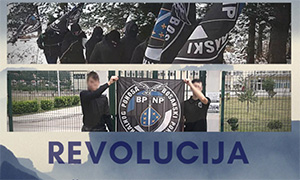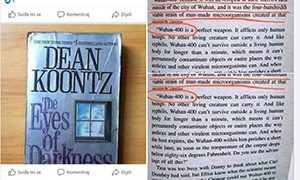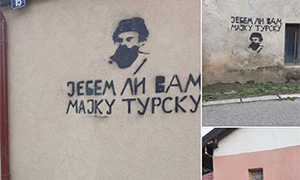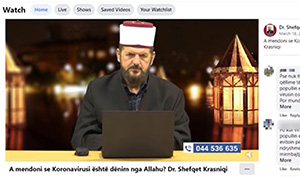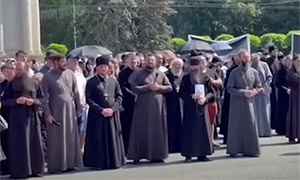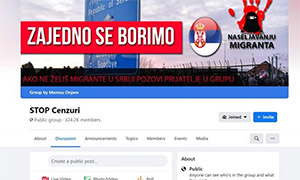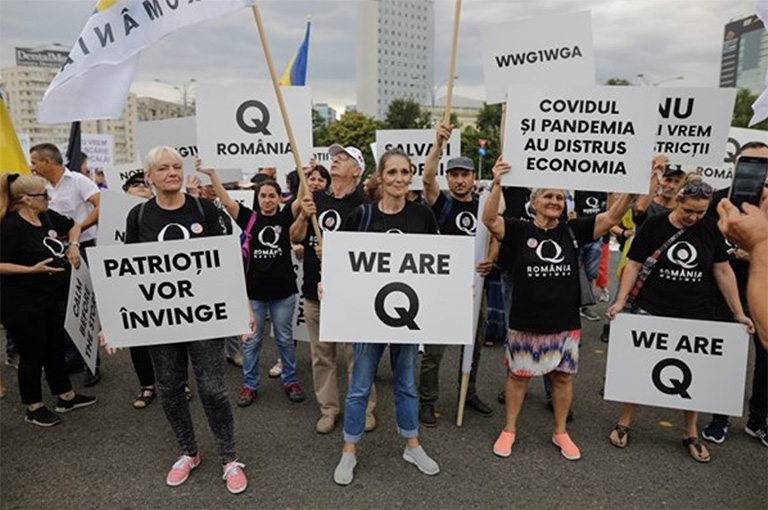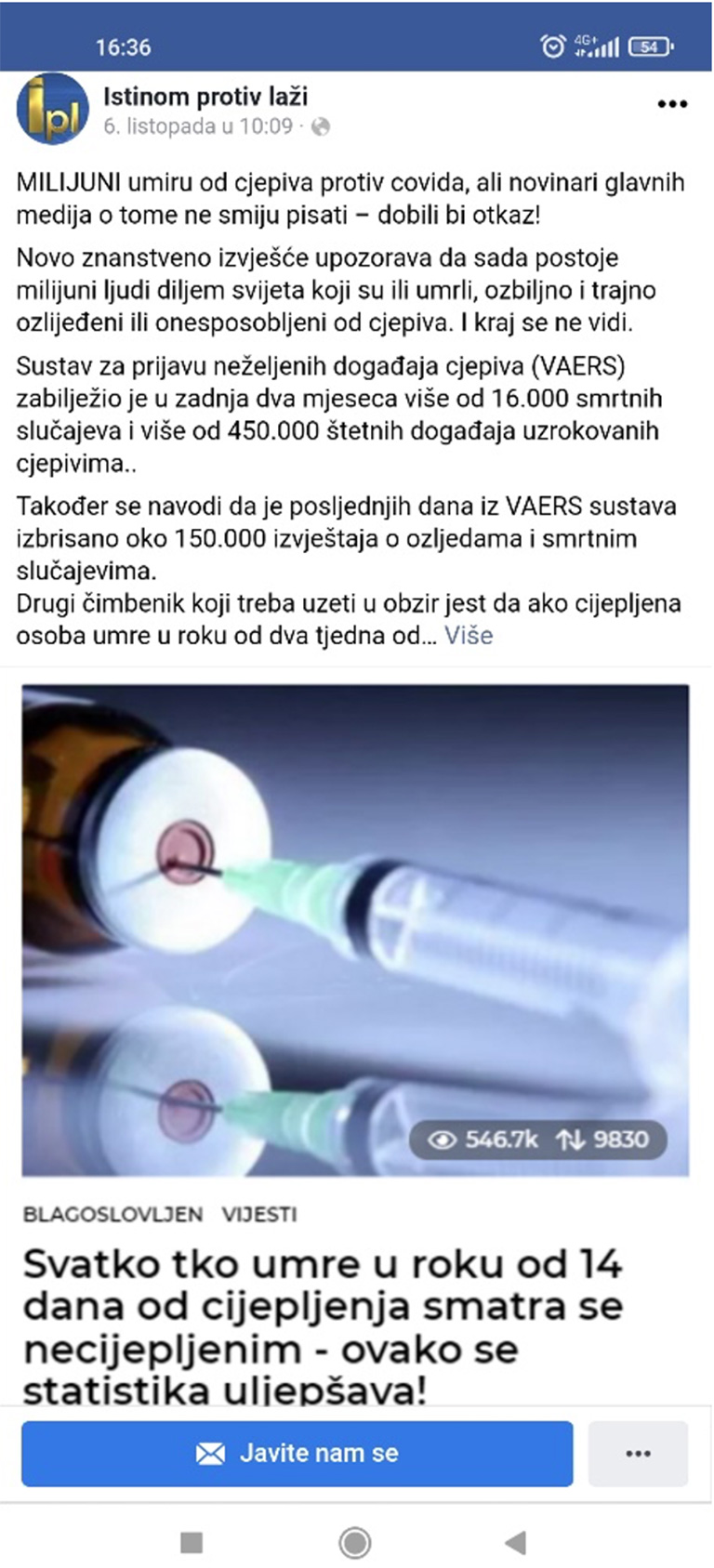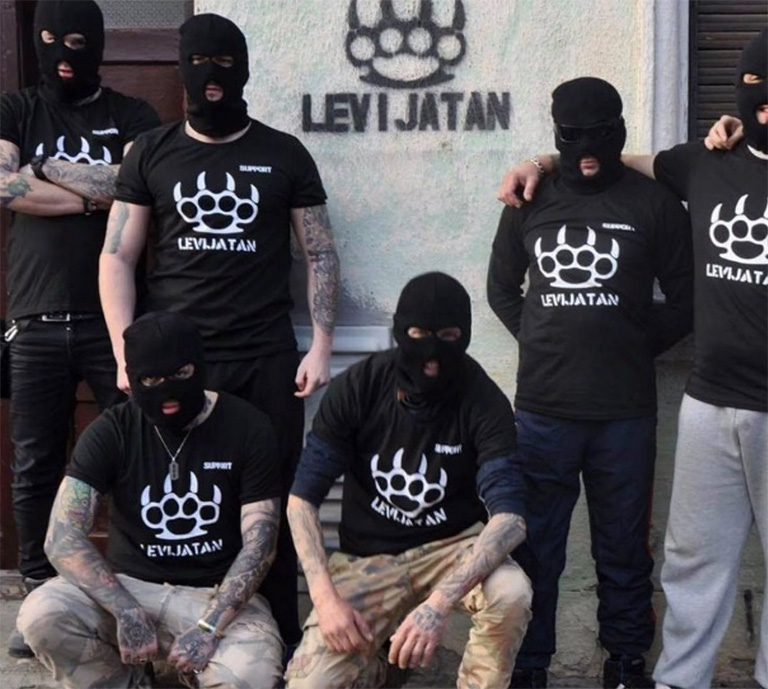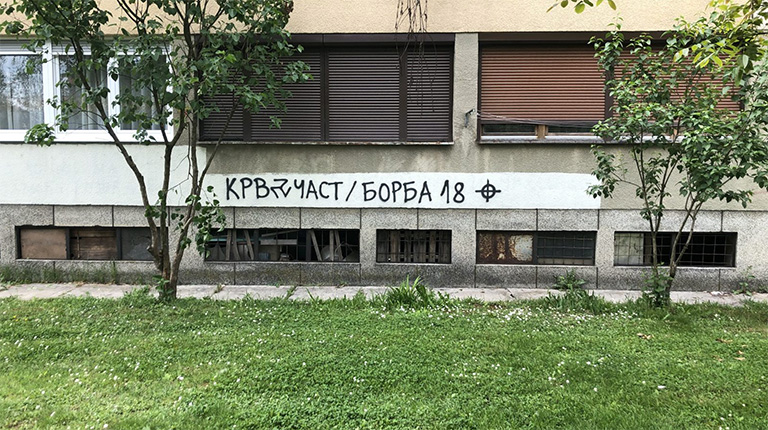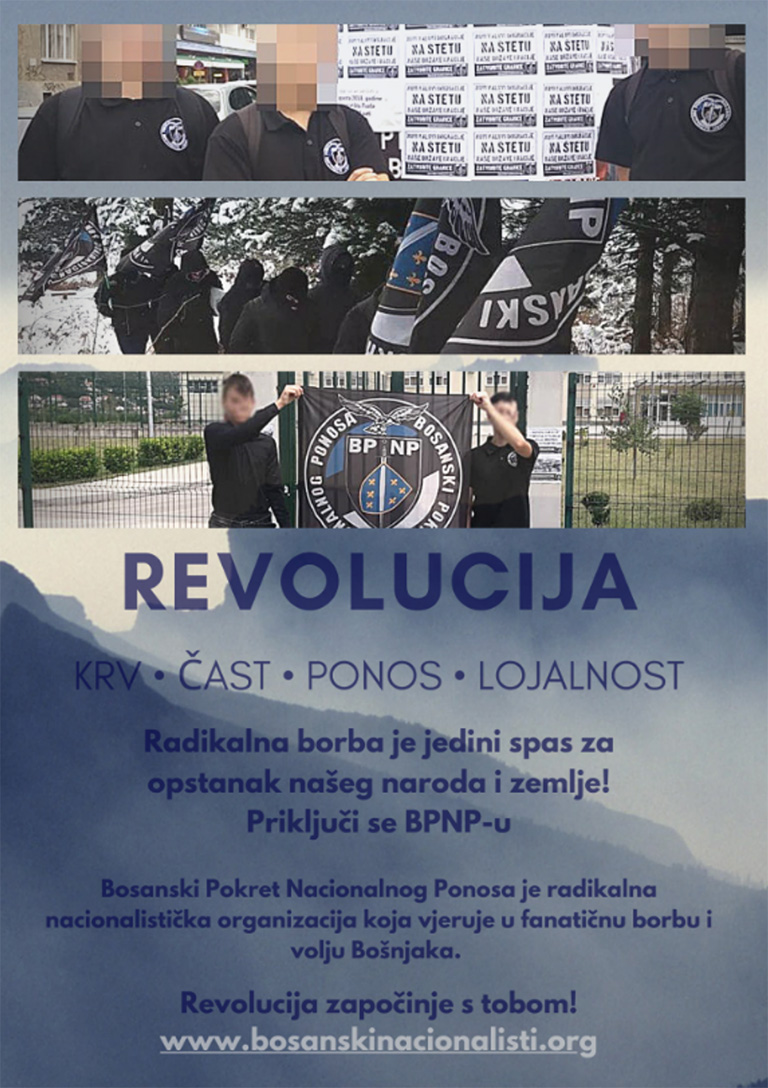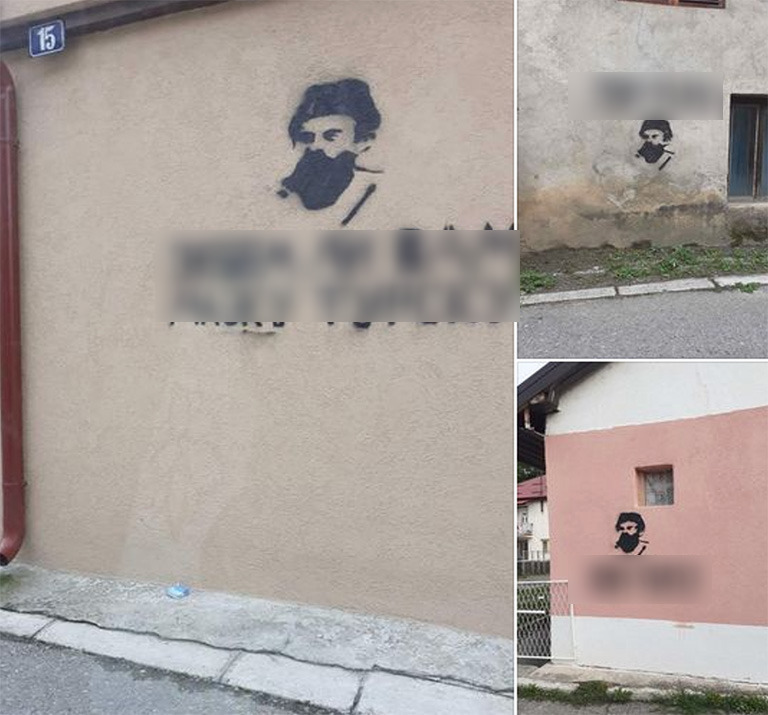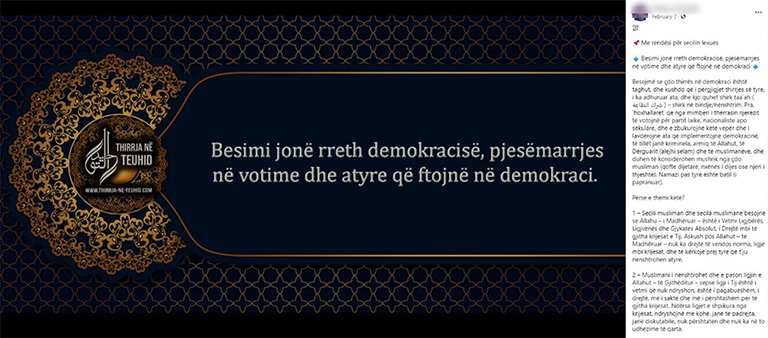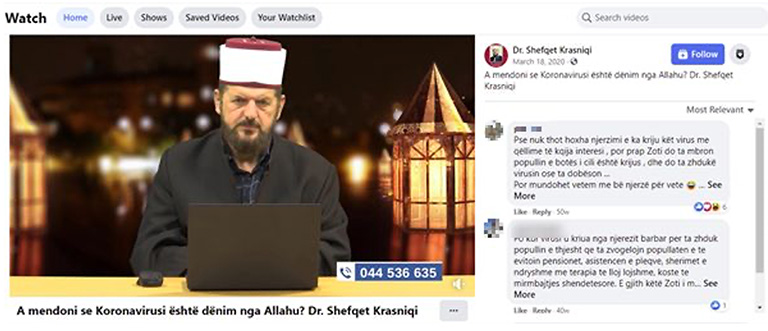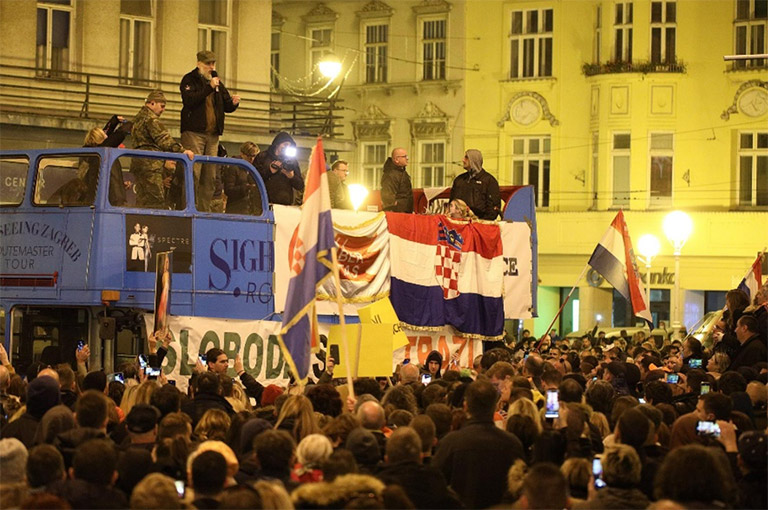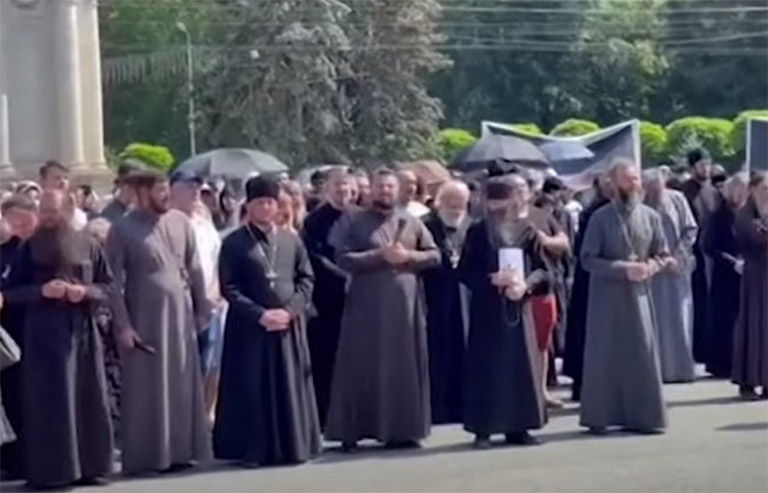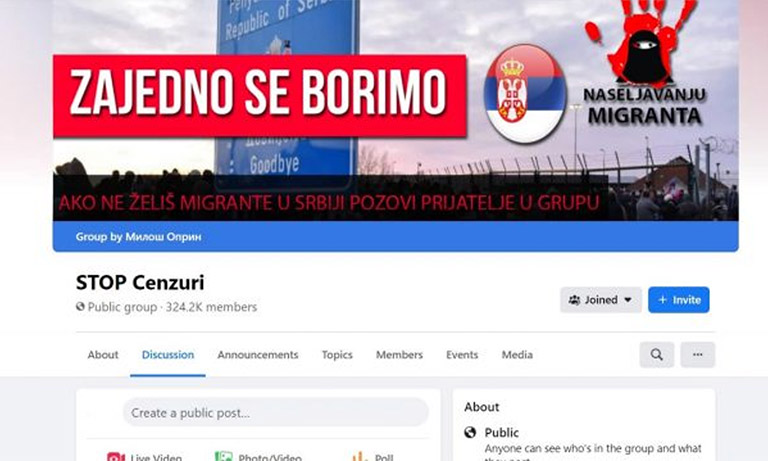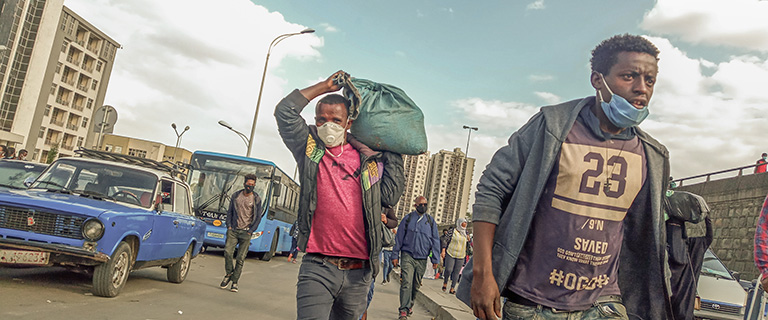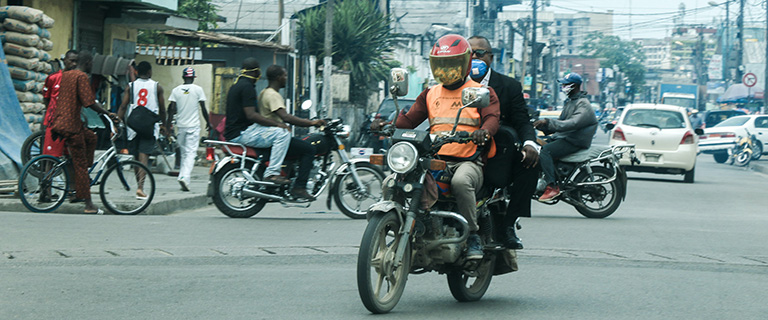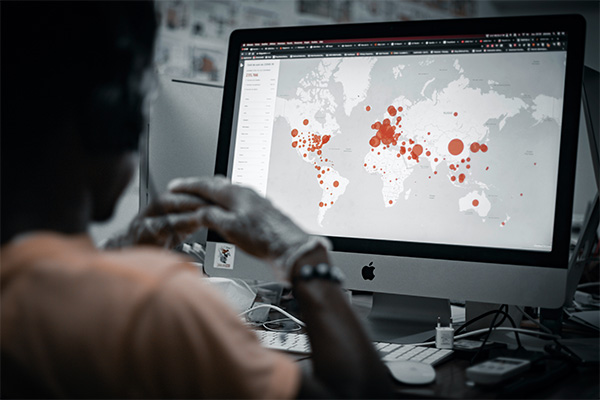
The Reshaping of the Terrorist and Extremist Landscape in a Post Pandemic World
A major research program investigating the impact of COVID-19 on terrorist and extremist narratives.
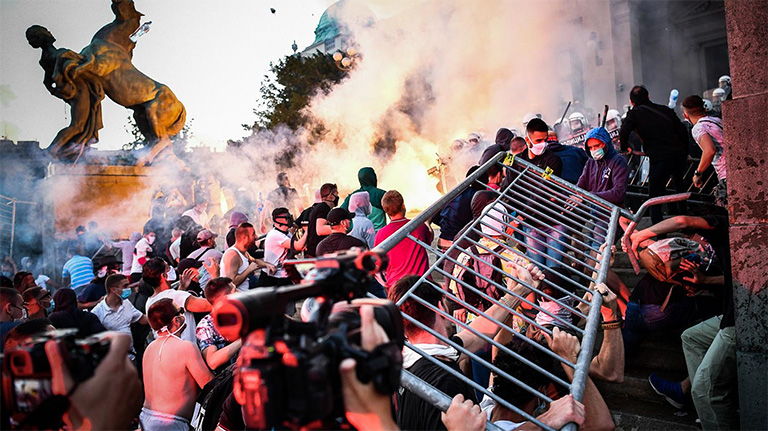
The Balkans
Across the Balkans, COVID-19 pandemic circumstances and related weaponized conspiracies significantly impacted the nature and trends in violent extremist (VE) activities. The radical right, esoteric conspiratorial groups, and, to a lesser extent, Daesh-inspired and ideologically motivated actors capitalized on the pandemic to promote their ideologies.
Choose which year of analysis to view via the slider below: 2021 or 2020.
Region Summary | Choose Year
This report analyzes violent extremism trends in the Balkans from January to December 2021, during a time when COVID-19 was still significantly present in the region. During this period, research findings demonstrate a general continuation of violent extremism trends from 2020, including intensified radical right activity and violent protests across the region,1 new COVID-19 conspiracy theories often leveraged by extremist organizations, and the continued spread of mis- and disinformation. Recent trends in 2021 highlighted an increase in vaccine-related conspiracy theories, included those espoused by violent extremist organizations, as opposed to those more common in 2020 that denied the existence of the virus altogether. Terrorist activities, while rare, nevertheless continued, culminating in foiled plots and arrests in Kosovo and Croatia.
Examples of extremist narratives and propoganda in the Balkans
Violent extremist organizations and extremist actors continued to proliferate anti-immigration and Islamophobic narratives and sentiments, agitate against gender equality, promote conspiracy theories, and exploit the COVID-19 crisis.2 New xenophobic radical right initiatives presented themselves as “purifiers of society” and “correctives of government,” and often engaged in attacks against the LGBT+ communities and anti-fascist activists. This trend was noted in multiple countries. Evidence also suggests that radical right extremists managed to capitalize on the situation better than other extremist movements. Further continuing trends have been:
- the continuous presence of COVID-19-related conspiracy theories, disinformation, and misinformation campaigns in extremist organizations’ propaganda, including indigenous narratives and those imported from foreign outlets;
- accelerated protest movements and hate speech directed again migrant and LGBT+ communities by radical right actors, many of which included violent and anti-government acts; and
- the continued importance of communication channels and platforms for extremist actors and groups, namely Facebook, Twitter, Instagram, WhatsApp, Viber, Telegram, and TamTam, as well as websites and blogs. Platform led content removal, takedowns, and societally initiated de-platforming3 remained limited in scope and impact.
As in 2020, public debates in 2021 were strongly defined and framed by the COVID-19 pandemic. Extremist narratives fed into public discourse involving conspiracy theories, hateful language, and disinformation around concerns about vaccination, along with protests against governments’ rule of law, democratic principles, and specific communities, including migrants, Roma/Romany, LGBT+, and journalists. Social media remained critical for spreading extremist content, often in form of narratives. Facebook, Twitter, Instagram, and WhatsApp, along with less discussed platforms like TamTam, Viber, and Telegram continued to be the most used platforms for spreading fake news and disinformation about COVID-19 and vaccination. Stand-along blogs for mis- and disinformation continued to be hosted online. Finally, a sweeping metanarrative also focused on falsehoods about the adverse side effects of vaccines and alleged inconsistent or excessive measures taken by the governments.
Despite challenges posed to institutions, societies and industries by COVID-19, several countries (notably Albania, Kosovo, and North Macedonia) repatriated former foreign terrorist fighters (FTFs) and their families from Iraq and Syria in 2021. During July 2021, Kosovo repatriated 11 foreign terrorist fighters or related returnees from Syria and Iraq (six men, one woman, and four children). In the same month, North Macedonia repatriated 23 of its citizens (four men, five women and 14 children) from Syria and Iraq.4 These states are now implementing programs for their rehabilitation and reintegration. For example, in March 2021, Bosnia-Herzegovina (BiH) adopted the Decision on the formation of the Coordination Team for the process of repatriation of BiH citizens from conflict zones in Syria and Iraq.5 Relatedly, as illustrated by the Balkan Investigative Research Network (BIRN) Terrorism Database, 28 BiH citizens have been convicted by Bosnian courts to date for their involvement in the war in Syria, and 16 for domestic terrorism-related crimes.6 Repatriation and prosecutorial efforts elsewhere in the region varies.
In the other countries of the region, only sporadic violent extremist-related activity could be observed. In North Macedonia, two extremist affinities stood out, namely among long-term supporters of the imprisoned imams Shukri Aliu and Rexhep Memishi, as previously flagged in the 2020 findings of this report series7. In Kosovo, authorities arrested five people suspected of plotting terrorist attacks, allegedly preparing to use explosives in multiple locations throughout the country.8 In Croatia, two people were arrested at an anti-COVID protest in November 2021 and charged with public incitement to terrorism after allegedly encouraging citizens in Croatia and abroad to engage in physical attacks.9
Policy Recommendations:
- Focus campaigns on countering conspiracy theories and misinformation about COVID-19 from the radical right. The findings of this report indicated an increase in the activities of conspiracy theorists, anti-COVID-19 believers, and anti-government activists. Some of this material is repurposed by the radical right and other extremist organizations. A more consolidated effort is consequently needed from national governments in the region to effectively counter widespread misinformation about COVID-19 and vaccines. Suggestions include launching social media campaigns targeting dis- and misinformation, and responding with science-based counter-narratives (for example, by engaging relevant scientists as credible messengers to relay scientific data).
- Provide training and support that enhances digital literacy in the education system. Disinformation campaigns can have severe impacts on the general population as they may not have the digital literacy training or skills to distinguish between factual information and false or fake news. Establishing media and digital literacy modules incorporated in nation-wide educational curricula as well as having programs available for the broader population will help diminish this threat.
- Establish working relationships and monitoring protocols between the security sector and the private sector to better track terrorist groups online. Ideologically motivated extremists and the radical right have not fully been countered by authorities during the reporting period. These groups and individuals have limited their offline activities while continuing to maintain an online presence. National governments in the region need to continue to improve monitoring capabilities of online extremism to ensure they are informed on developing security threats at an early stage. Additionally, they need to develop or adapt protocols and enable transnational structures, including cooperation on law enforcement in virtual environments, to effectively counter the use of the internet to spread terrorism and extremism. Partnerships with entities like the Global Internet Forum to Counter Terrorism (GIFCT) and Tech Against Terrorism (TaT) can help in this regard.
- Adapt counter-narratives to the local context for the Balkans. The development and dissemination of country-specific counter-narratives addressing terrorist and extremist propaganda is crucial in ongoing preventing and countering violent extremism (P/CVE) efforts in the region. Apart from the development of online counter-narrative and inclusion campaigns, a whole-of-society approach should be taken. For example, supplying corresponding educational material to schools and similar institutions to promote inter-group trust, social cohesion, and common values (such as inclusive social norms) should be prioritized.
Footnotes
Countries of focus for this study include Albania, Bulgaria, Bosnia-Herzegovina, Croatia, Kosovo, North Macedonia, Montenegro, Moldova, Romania, Serbia, and Slovenia.
M. Halilović and N. Veljan, Exploring ethno-nationalist extremism in Bosnia and Herzegovina, Atlantic Initiative, 2021.
Note: For example, to prevent someone holding views regarded as unacceptable or offensive from contributing to a forum or debate, especially by individuals blocking them on particular social media platforms or other websites.
I. Kadriu, “North Macedonia repatriates 23 citizens from Syria”, Radio Free Europe, 18 July 2021, (accessed 9 October 2021)
Visit SourceThe Council of Ministers of BiH, Decision on the formation of the Coordination Team for the process of repatriation of BiH citizens from conflict zones in Syria and Iraq', Službeni list BiH br. 63/21, 4 March 2021, (accessed 15 March 2021)
Visit SourceSee: BIRN, ʻRegional Terrorism and Foreign Fighters Database,ʼ (accessed 8 October 2021)
Visit SourceShembulli, ‘Large police action in Skopje, Imam Rexhep Memishi and 8 other people are arrested’, 6 August 2015, Shembulli, , (accessed 08 October 2021)
Visit SourceP. Isufi, ‘Kosovo Arrests Five Suspects for Plotting Terrorist Attacks’, BIRN / Balkan Insight, 11 October 2021, (accessed 15 October 2021)
Visit SourceʻFrancišković i Kovačević ostaju u pritvoru, ostali jučer uhićeni pušteni,ʼ Index.hr, 4 December 2021, (accessed 15 December 2021)
Visit Source
Region reports
For full analysis and recommendations, download the region reports for 2020 and 2021.







